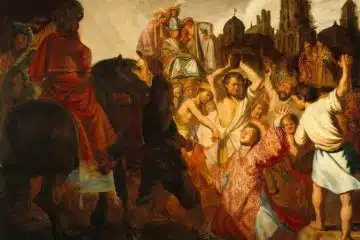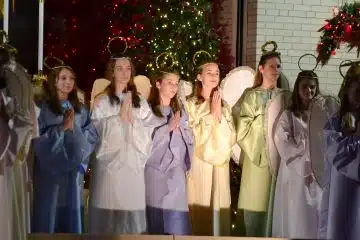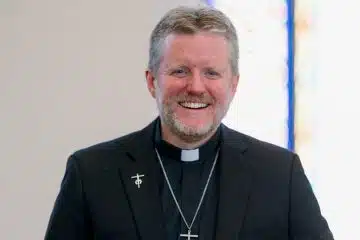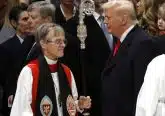Christ and Culture: Super Bowl Rituals, Referees, and the Episcopalian Divorce
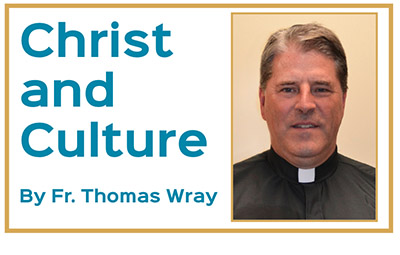 Welcome to Christ and Culture, the newest online exclusive column for TheCatholicTelegraph.com. In this monthly piece, Father Thomas Wray will explore connections between Jesus Christ and his people through the lens of pop culture.
Welcome to Christ and Culture, the newest online exclusive column for TheCatholicTelegraph.com. In this monthly piece, Father Thomas Wray will explore connections between Jesus Christ and his people through the lens of pop culture.
Father Thomas Wray is a priest of the Archdiocese of Cincinnati and Director of the Office of Evangelization and Catechesis. He, along with his wife and children, are converts to the Roman Catholic Church. (Learn more about Father Wray’s story HERE) Father Wray served 20 years as a pastor in the Episcopal Church, the American branch of the Anglican Communion.
Will you tune into Superbowl 50 on Feb. 7? What’s in it for you — the game itself, the commercials, the halftime show, the buffalo wings, or all of the above?
One thing is clear—no one could truly enjoy this uniquely American form of excess without the thankless work of the officials. Bengals fans know exactly how much good or bad officiating affects the final score.
Cheer or jeer as we may at the referee’s calls, no one questions their right to make them. Serious fans, and all players and coaches, know the rules of the game and rightly respect good officiating. Even with hi-tech, frame-frozen replays, we still need human “eyes on the play.” We still need real, not virtual striped shirts on the field with the authority to decide if a sack was legal or illegal…. if the feet were in or out of bounds…. if the knee was up or down…. if the ball was under control or not. For athletes to play with passion, for fans to cheer with civility, boundaries must be marked and infractions must be flagged.
This is true in family, corporate, and civic life. It is also true in religion.
Our Lord Jesus Christ knew that his apostles needed a visible leader. Graced by the Holy Spirit, his chosen leader would listen to arguments, weigh the evidence, and make decisions. This meant he would authoritatively “close” questions after debate so the community could define and joyfully proclaim Jesus’ loving message to the world. Jesus commissioned Peter to continue his ministry as our Good Shepherd, calling his fellow elders to shepherd the flock. (Matt. 16.13) From them emerged the first bishops, to be the really-real-in-history” signs and instruments” of a unified Christianity, inviting all to confess the Lordship of Jesus Christ.
History is littered with the sad stories of Christians who try to “go it alone” apart from the Successors of Peter.
Recently in England we saw the tragic breakup of another distinguished denomination. The Anglican Communion disciplined its American branch (the Episcopal Church) over its oft-stated intention to “walk apart” from the denomination on matters of faith and morals. More than any single hot button “issue” so wrongly reported in the secular media, the root cause of this divorce is simple, but not simplistic: authority. Who interprets the Bible and Sacred Tradition? Is there a referee?
Where there was once a unified and singularly elegant Anglican communion and ethos, now there are dozens of Canterbury splinter groups. They join more than 30,000 Protestant denominations who for often sincere reasons said “no” to full, visible communion with the Successors of Peter.
My wife and children and I have many friends and family members who are devout and loving Episcopalians. We cherish the rich 500-year old Anglican liturgical and literary traditions. It was through them that God graciously called us to “come home” to the Catholic Church.
The rejection of God-given authority in general, and the Anglican/Episcopalian divorce in particular, hurts everyone. If you have Episcopalian friends, please reach out and let them know you are praying for them.
Especially next month on Feb. 22, 2016, the Feast of the Chair of St. Peter, let us thank God for the gift of 2,000 years of unbroken, spirit-led and visible authority in the Roman Catholic Church.







